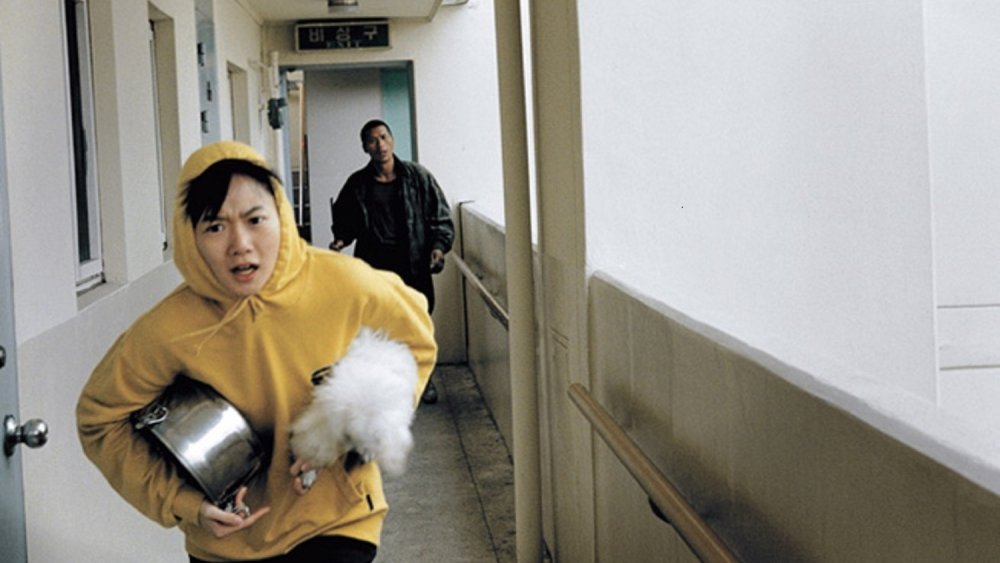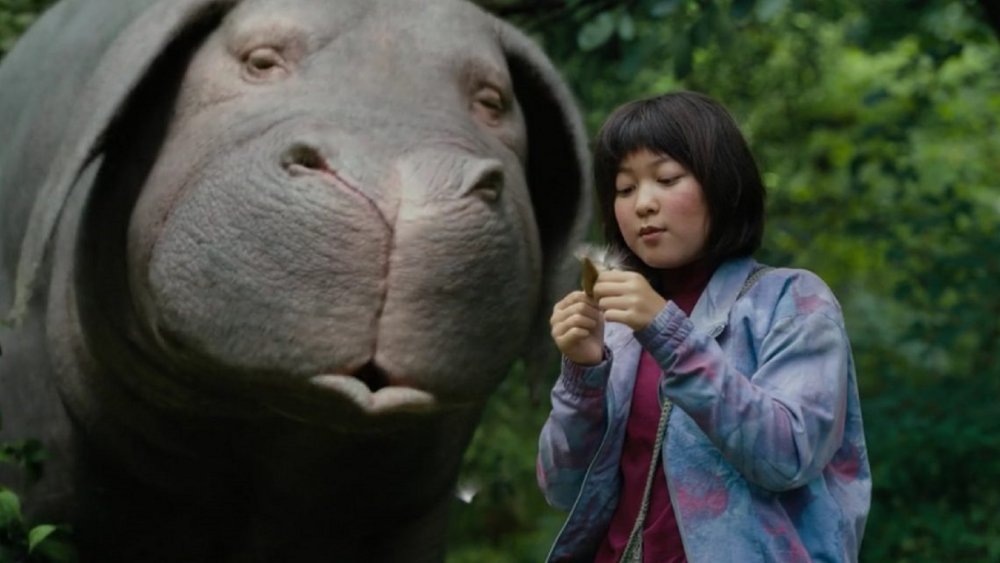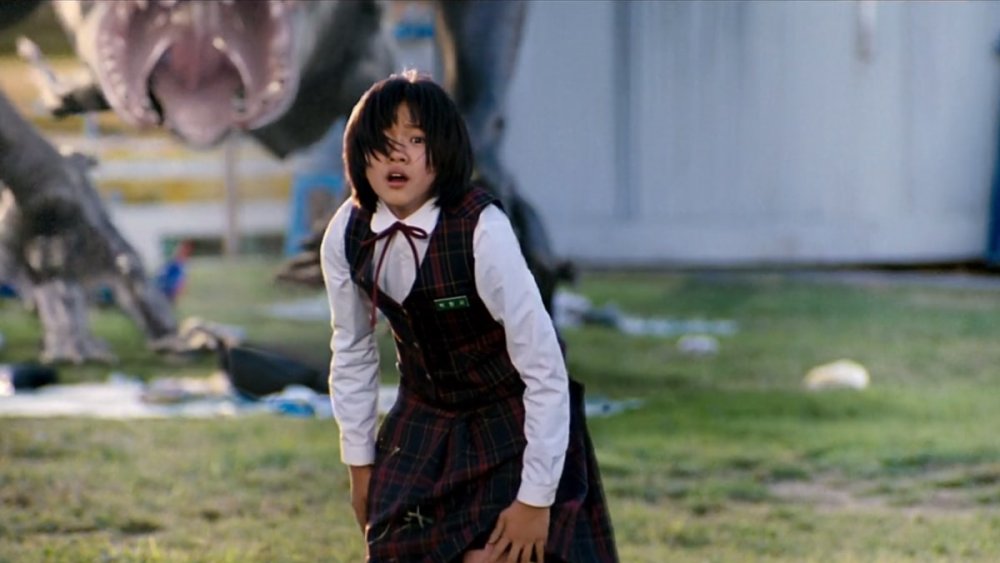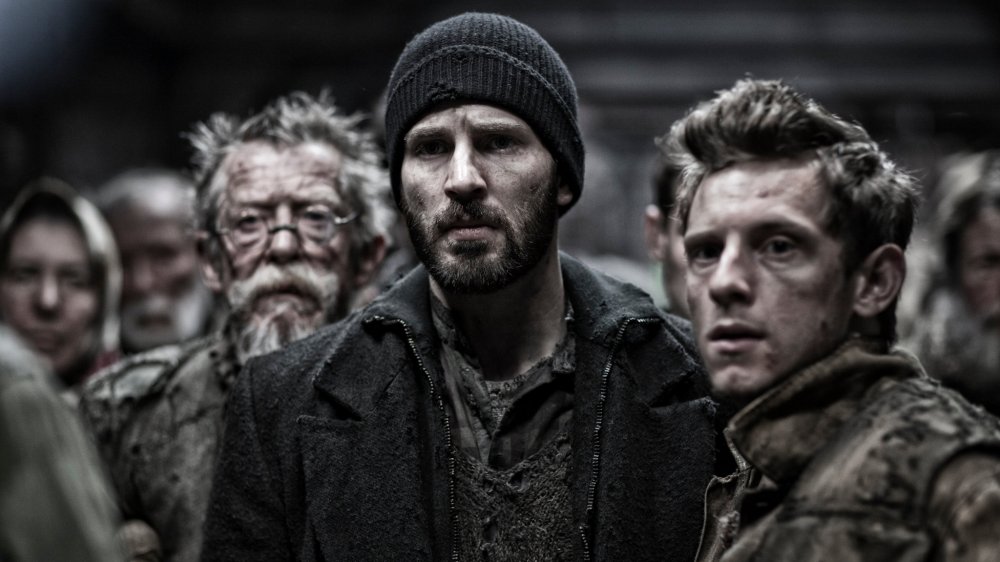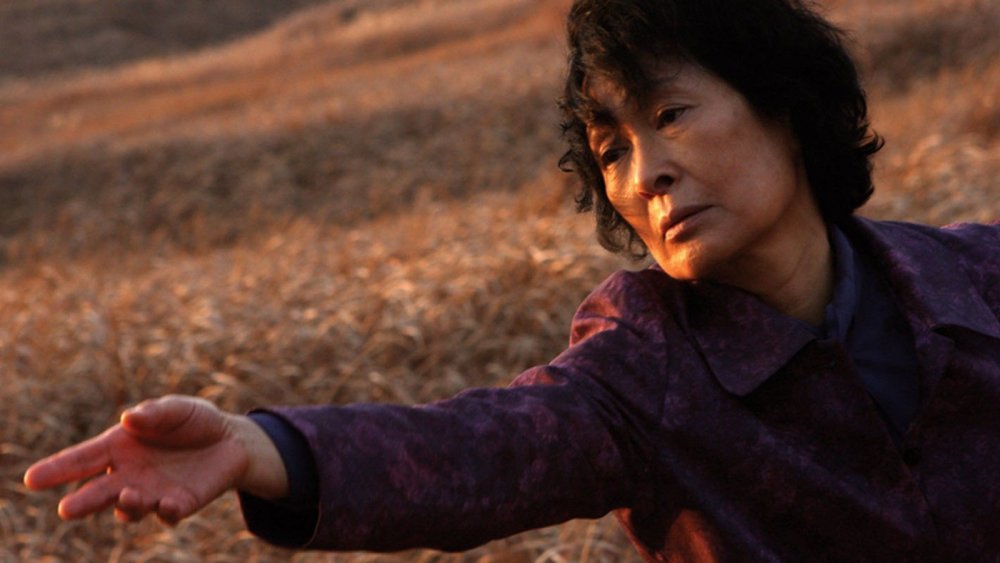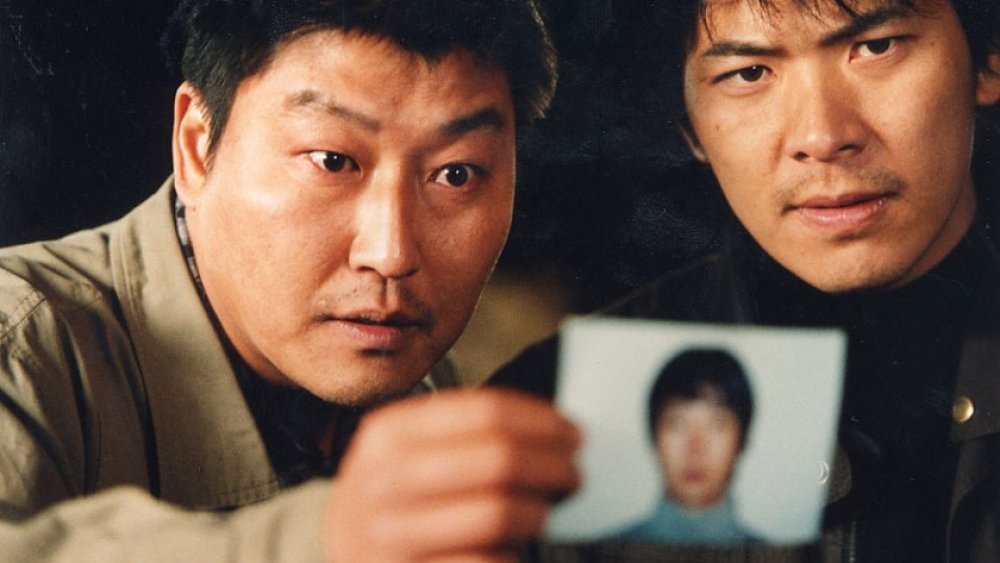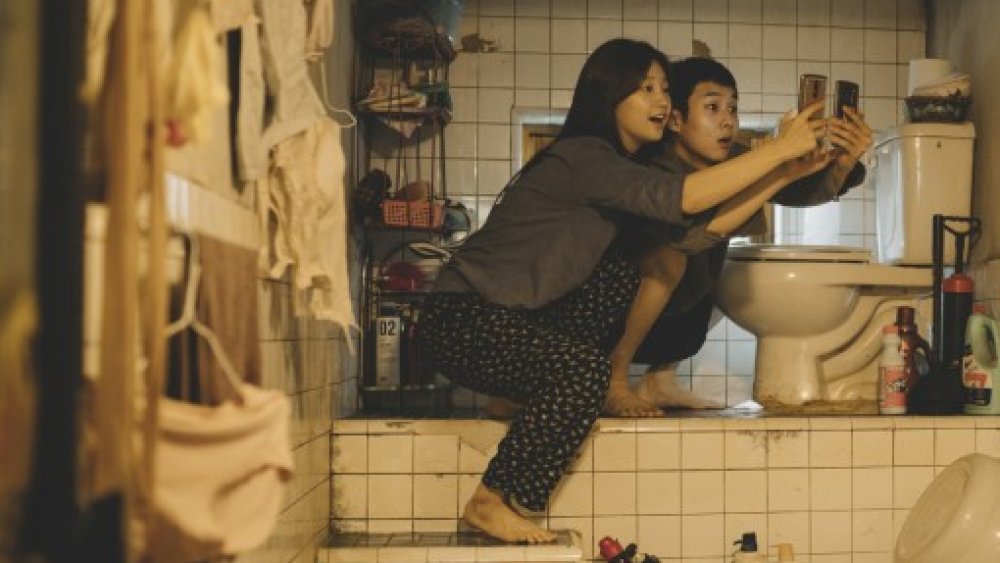Ranking Bong Joon Ho's Movies Worst To Best
At the 92nd Academy Awards, director Bong Joon Ho's black comedy/psychological thriller Parasite became the first non-English language film to win Best Picture. In fact, Parasite won more Oscars than any other film this year, racking up wins for Best Original Screenplay, Best Director, and Best International Feature Film. Joon Ho might be a new name for many American moviegoers, but over the past two decades, he's been one of the most prominent filmmakers in South Korea. His films tackle complex issues and balance serious narratives with dark humor, and he's highly skilled at subverting the tropes of whatever genre he's working in.
Today, Bong Joon Ho has seven feature films under his belt. Plus, he's already busy adapting Parasite for a television miniseries, and he says he's got ideas for two more upcoming movies — but he's keeping quiet about the details for the time being. Whether you've already seen Parasite or you're just trying to avoid spoilers until you can finally see what the buzz is all about, now is the perfect time to get acquainted with the rest of Bong Joon Ho's filmography. Here's a breakdown of all of Bong Joon Ho's feature films, ranked from worst to best — but when a filmmaker this talented is behind the camera, even his "worst" movie is well worth watching.
Barking Dogs Never Bite
If you've ever lived in an apartment complex, you've probably had a neighbor whose dog seemed to bark at anything that moved. In Barking Dogs Never Bite, unemployed academic Ko Yun-ju struggles in his relationship with his pregnant wife Eun-sil while trying to find a job as a professor — and listening to the dog barking in his building all day only exacerbates his frustration. He decides to take matters into his own hands by kidnapping a Shih-tzu he finds in the hallway. But this risky move doesn't solve his problems, and when one maintenance worker starts looking for the missing dog so she can play the hero, the situation quickly spirals out his control.
Barking Dogs Never Bite was Bong Joon Ho's first feature film. While the movie has plenty of redeeming moments, and he definitely establishes his talent for crafting scenes that can inspire shock and laughter at the same time, the pace feels sluggish at times, and it's clear he had plenty of room to make progress as a director. Unsympathetic characters can certainly add depth to a film, but the protagonists in Barking Dogs Never Bite are so unlikeable that it's tough to root for any of them to succeed.
Okja
In Okja, the fictional Mirando Corporation is ready to take the meat industry by storm by announcing a new experiment: they have been breeding a new species of "super pig," and they will be distributing 26 specimens to farmers around the world, with the intent of breeding the best super pig of the bunch in ten years. A time jump moves the film forward by a decade, as Mija, a young Korean girl, helps care for one of the super pigs, "Okja," on her grandfather's farm. When a Mirando spokesperson and zoologist visits their farm to declare Okja the winner of the competition, Okja is taken away, and Mija is understandably heartbroken — and she ends up tagging along with a group of animal rights activists to save her companion.
Okja is a heartwarming film — there's something special about seeing the bond between a child and their beloved pet, and it does make a strong case for animal welfare and examining our food choices. Even if you feel like you could never dream of giving up bacon, seeing Mija fight to save Okja at any cost just might make you think twice. But structurally, the film feels messy — there are jarring shifts in tone, especially as the setting moves between South Korea and America. The cinematography isn't quite on par with Bong Joon Ho's other films, but if you're an animal lover, Okja is still an enjoyable watch.
The Host
The Host is the kind of sci-fi film that can leave you holding your breath every time the monster slips out of sight — you know it could strike at any moment, and you don't want to let your guard down.
After an American military pathologist tells his Korean assistant to dispose of the contents of 200 bottles of formaldehyde by dumping them in the Han River, the fish population gradually declines, and locals report sightings of a large unidentified creature lurking in the water. Years later, we're introduced to snack bar owner Park Gang-du, who works by the riverbank with his family. When a massive serpent emerges from the water, snatching his daughter and killing countless passersby, Gang-du must fight with everything he has to try and save her life.
Bong Joon Ho makes some unexpected directorial choices in this film — most notably, he reveals the monster very early on, which will satisfy some viewers' curiosity while leaving others wishing he spent more time building up the mystery. But the relationships within Gang-du's family feel very realistic, and you'll definitely feel emotionally invested in their fate. The Host is a solid film — it just has some stiff competition among Bong Joon Ho's other projects.
Snowpiercer
Bong Joon Ho tackles climate change and class tensions in Snowpiercer, in which the survivors of a geo-engineering experiment gone wrong live on a train that circles the globe. Snowpiercer was Bong's first film shot predominantly in English, which helped him gain some popularity with mainstream American audiences prior to Parasite.
The passengers on the Snowpiercer train are separated by wealth. The poor live in cramped, squalid conditions in the back, where armed guards keep a watchful eye on their activities, while the elites enjoy luxury in the front carriages. It's only a matter of time before the passengers in the rear start plotting a revolution that inevitably turns violent. As the conflict escalates, another question arises — what if life is possible outside the train?
Snowpiercer is gritty and bleak, and those who prefer lighter films will find few uplifting moments. It's a unique setting for a dystopian film, but the characters can occasionally come across as stereotypes of the rich and poor rather than nuanced portrayals. However, Bong Joon Ho's insight into the conditions that create uprisings serves as a timely warning, and it doesn't feel like a rehash of other post-apocalyptic movies.
Mother
This heartbreaking drama tells the story of a widow known only as "Mother" and her son Yoon Do-joon. She sells medicinal herbs and provides acupuncture services to the women in their small town, and debts that her son has accrued leave her struggling with a financial burden. He may seem shy at times, but anyone who mocks him for his disability risks being on the receiving end of violence.
After Yoon Do-joon follows a girl named Moon Ah-jung into an abandoned building, she is found dead on the rooftop the next morning — and with circumstantial evidence pointing to his guilt, he is imprisoned. Mother believes that her son is completely innocent, and she fights to free him and right this injustice. Is the real murderer still out there? Is Yoon Do-joon actually a cold-blooded killer? And is Mother really the doting and protective parent she claims to be? The answers to all of these questions and more come to light throughout the film.
Mother is a twisted, unsettling family drama with Bong Joon Ho's signature sense of humor woven throughout. The eerie cinematography makes this a visual masterpiece, and the narrative is unpredictable without feeling choppy or jumbled. The violence can be jarring, but otherwise, this is a pitch-perfect film from Bong Joon Ho.
Memories of Murder
In Memories of Murder, Bong Joon Ho adapts the story of the first serial murders in South Korean history for the big screen. Memories of Murder is considered to be one of the best South Korean films of all time — and the designation is definitely warranted.
When two women's bodies are found in a ditch, Detective Park and Detective Seo end up on the case. As luck would have it, they have very different ideas about how to figure out who actually committed the crime — their unorthodox methods include trying to determine potential suspects solely through making eye contact, and judging the appearance of a suspect's hands to decide if they're capable of murdering someone. Naturally, they struggle to nail down the killer, and chasing dead ends only lands them in more trouble.
In Memories of Murder, Bong Joon Ho somehow balances comedy, action, and suspense in a way that does not disrespect the memory of the actual victims. It's a tough maneuver to pull off, but the film succeeds. Park and Seo may be unprofessional and even violent in their approach to police work, but their raw desperation to find the killer and save the women of their small town makes them feel authentic.
Parasite
The international success of Parasite is the crowning achievement of Bong Joon Ho's career so far. In Parasite, he deftly examines the way our class status can shape our entire lives — and how difficult it can be to rise above the situations we were born into. He expertly conveys his critiques of our economic system without being heavy-handed.
Ki-taek and Chung-sook Kim live in a cramped basement apartment with their son Ki-woo and their daughter Ki-jung. The family members take on odd jobs to make ends meet, and one day, Ki-woo's friend asks him to take over his job as a tutor for the daughter of the wealthy Park family. Ki-woo takes him up on the offer, and he uses his new position to secretly help his family get a leg up. One by one, they pose as strangers, secretly scheming against the Parks' other employees until they're basically running the place. But the Parks' home is hiding some secrets of its own — secrets that could expose the Kim family and destroy everything they've tried to build.
Parasite is a masterclass in filmmaking — everything from the dialogue to the sets to the lighting is on point. With Parasite, Bong Joon Ho has instilled international audiences with a whole new appreciation for South Korean cinema — and now, his many new fans are just waiting on his next move.

